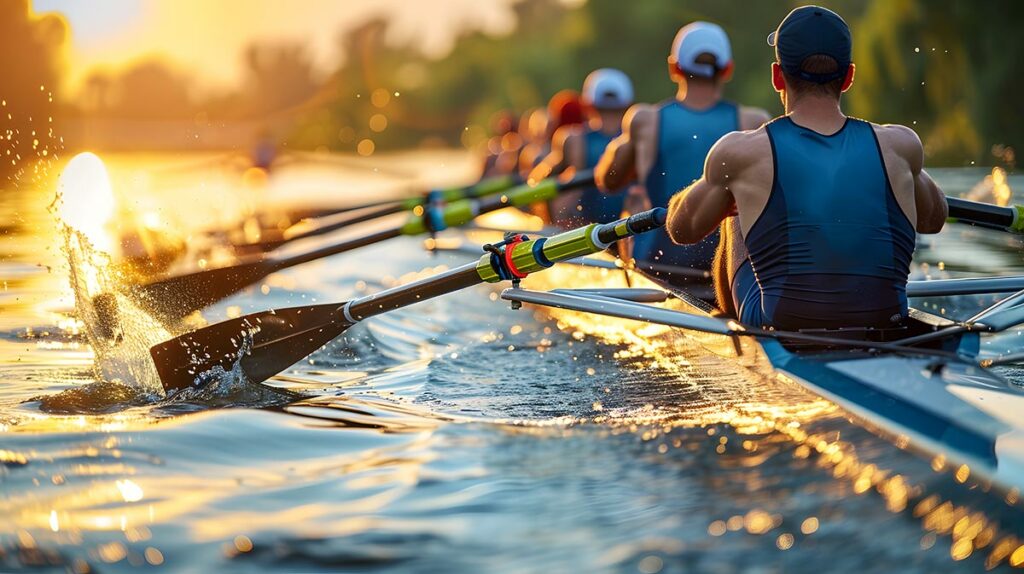Hello everyone, I’m Guy Monseair, the Head Coach and Executive Director at City Island Rowing. As someone who has spent countless hours on the water, I’ve developed a profound appreciation for the natural environments in which we train and compete. Today, I want to discuss the importance of integrating eco-friendly practices into sports programs and how we, as coaches and athletes, can lead by example to make a significant impact on our planet’s health.
Understanding Our Environmental Impact
First and foremost, it’s crucial to understand the environmental footprint left by sporting activities. From the equipment we use to the facilities we operate, every aspect of sports has potential environmental implications. In rowing, for instance, the maintenance of boats and the upkeep of our boathouse consume various resources. Recognizing this has prompted me to think critically about how we can minimize our impact while still providing a top-notch training environment.
Implementing Sustainable Practices
One of the first steps we took, long before it was commonplace, was to switch our fleet of coaching launches to 4 stroke engines (rather than 2 strokes). The 4 stroke engines are vastly more eco friendly, and fuel efficient… making it a win win for us and the environment. Next steps towards becoming more eco-friendly was to evaluate our equipment and facility management. We started by transitioning to more sustainable, non-toxic, bio degradable cleaning products for our boats. We also began investing in higher quality equipment that, although more costly upfront, lasts longer and needs to be replaced less frequently. This not only reduces waste but also decreases the long-term environmental impact of our manufacturing needs.
Reducing Water and Energy Use
Energy conservation is another key area where sports facilities can make a significant difference. At City Island Rowing, we’ve installed energy-efficient lighting and low-flow plumbing fixtures to reduce our electricity and water use. We are also in the process of adding solar panels to decrease our reliance on non-renewable energy sources. These changes have not only helped us reduce our carbon footprint but made our athletes consider what changes they can make in their own homes and lives – fostering a mindset of eco friendly practices.
Promoting Recycling and Waste Reduction
Recycling and waste management is another critical area. We encourage all team members to use reusable water bottles, and we have set up clearly marked recycling bins throughout our facilities. At regattas, our parent Association is mindful with their meal planning, to help reduce packaging and waste.
Engaging the Community
Community engagement is a powerful tool in spreading eco-consciousness. We participate in clean-up days along the shoreline where we train, which not only helps protect the local ecosystem but also fosters a sense of stewardship among our athletes. These activities allow our team members to see firsthand the impact of waste on our training environment, reinforcing the importance of our eco-friendly initiatives.
Sustainable Travel Practices
Traveling to practice and competitions is another area where environmental impact can be significant. To address this, we have optimized our travel logistics to reduce the number of vehicles we use. We encourage carpooling and, when possible, arrange for group transportation which not only cuts down on emissions but also builds team camaraderie.
Leading by Example
As a coach, I believe it’s my responsibility to lead by example. This means not only implementing sustainable practices in our program but also living those values in my personal life. Living on City island, I walk to our marina, as well as to the grocery store, bank and restaurants. I have engaged with the Hutchinson River restoration Project and continuously seek new ways to improve our program’s sustainability. I strive to be a role model for my athletes in hopes that they will carry these practices into their lives outside of rowing.
The Bigger Picture
Ultimately, integrating eco-friendly practices into sports programs is about more than just reducing our environmental impact—it’s about preparing our athletes to be conscientious global citizens. The lessons we teach about sustainability in sports can provide a foundation for thoughtful, responsible behavior in all areas of life.
Conclusion
Incorporating eco-friendly practices into sports programs requires commitment and creativity, but it is essential for the long-term health of our planet and future generations. At City Island Rowing, we are committed to leading by example, continuously seeking out new ways to reduce our environmental impact, and inspiring our athletes to do the same. By taking these steps, we not only enhance our own operations but also contribute to a larger movement towards sustainability in the world of sports.


